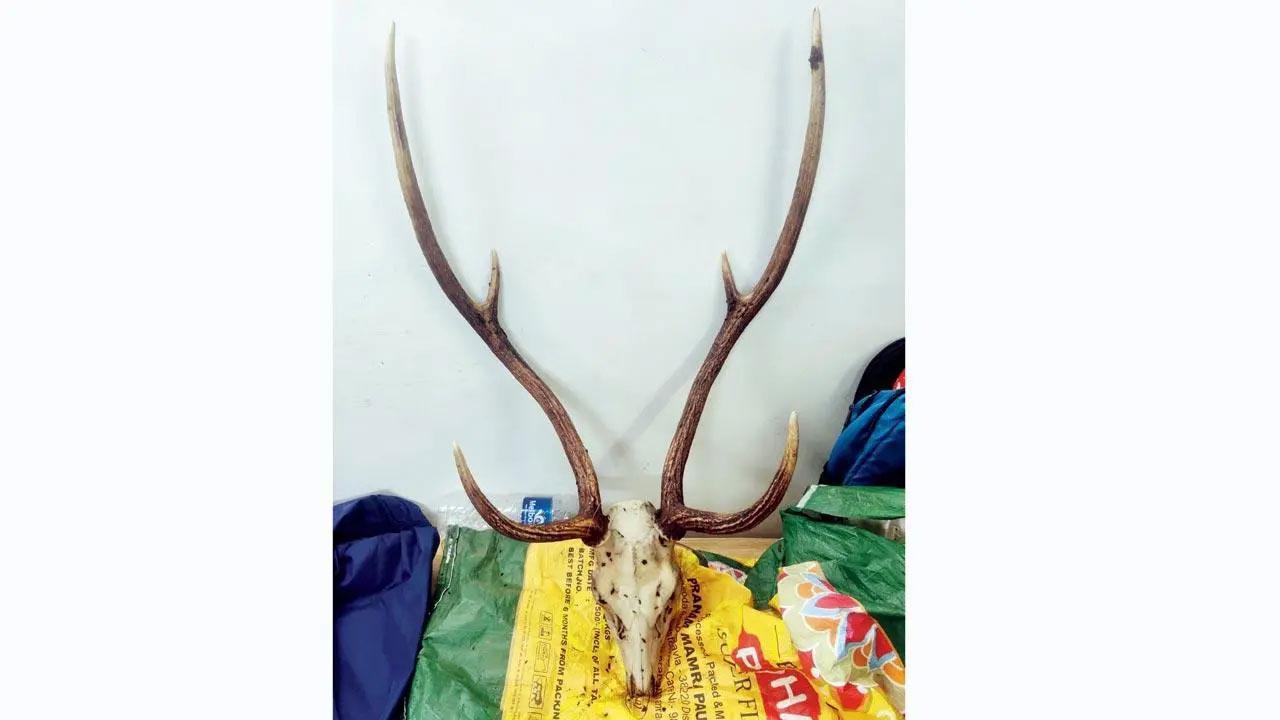Keep commercial value of species under wraps
Updated On: 09 August, 2023 06:54 AM IST | Mumbai | The Editorial
When animals or articles derived from them are given price tags or their monetary value is declared in the mainstream or social media, it does harm

The skull of a spotted deer, which was seized last month from three men who were attempting to sell the rare item
Wildlife trafficking is amongst the top illegal activities done both, globally and locally. When animals or articles derived from them are given price tags or their monetary value is declared in the mainstream or social media, it does harm.
A senior official for wildlife welfare has written to principal chief conservator of forests (wildlife) and chief wildlife warden, Maharashtra, to have certain regulations with regard to the disclosure of the commercial value of a species or articles derived from it while busting illegal wildlife trade.



